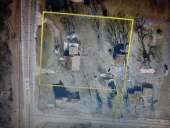












DEATH to the SUPERMARKETS BAKE BREAD PLAY THE UKULELE Action is futile Quit moaning MAKE MUSIC STOP CONSUMING START PRODUCING BACK TO THE LAND
SMASH USURY EMBRACE BEAUTY EMBRACE POVERTY HAIL THE CHISEL IGNORE the STATE REFORM IS FUTILE ANARCHY IN THE UK
HAIL THE SPADE HAIL THE HORSE HAIL THE QUILL LOVE THY NEIGHBOUR BE CREATIVE
FREE YOUR SPIRIT DIG THE EARTH
LIFE IS ABSURD WE ARE FREE BE MERRY




Muddling towards a more permanent agriculture. Not after a guru or a religion, just a functional garden.








1. my projects




Joseph Hatfield wrote:There were two evergreen trees planted in this area (actually several along the fence line) -- in this area near where the manure had been dumped -- and one died last year and the other is almost dead (green on top fourth, dead on bottom three fourths). I don't know if they were put in as large trees or grew there, then were killed by the manure being dumped. WHY would manure kill the evergreens? Also, could have been the water logged soil? This place gets pretty mucky at times (no real standing water. . . but water just below the surface, I think!)
I havent tested the pH of the soil. I was thinking of blueberries. . . but then read that blueberries don't like manure. Does manure make the soil more basic and not acidic?
Muddling towards a more permanent agriculture. Not after a guru or a religion, just a functional garden.




Brenda
Bloom where you are planted.
http://restfultrailsfoodforestgarden.blogspot.com/

|
These aren't just sunglasses. They are a coolness prosthetic. For this tiny ad:
GAMCOD 2025: 200 square feet; Zero degrees F or colder; calories cheap and easy
https://permies.com/wiki/270034/GAMCOD-square-feet-degrees-colder
|



